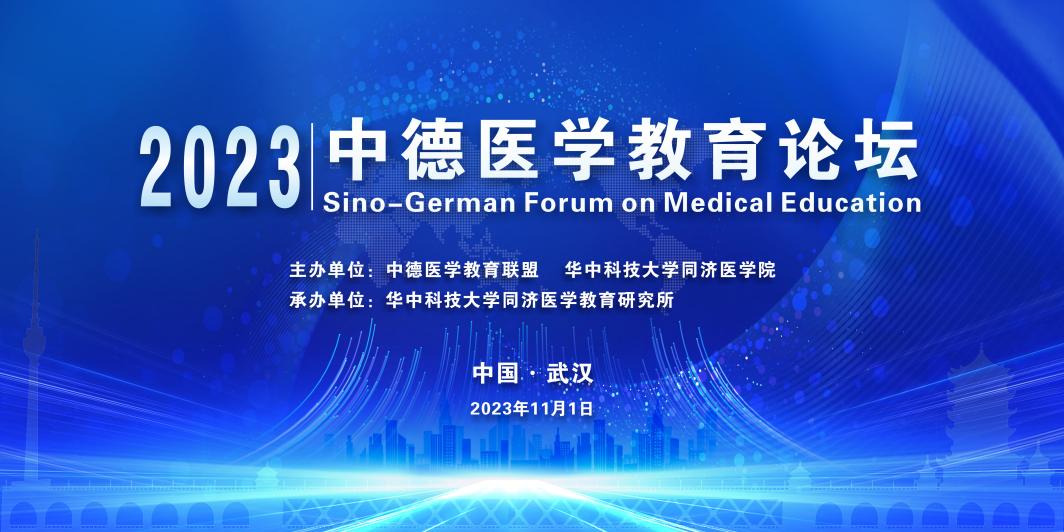
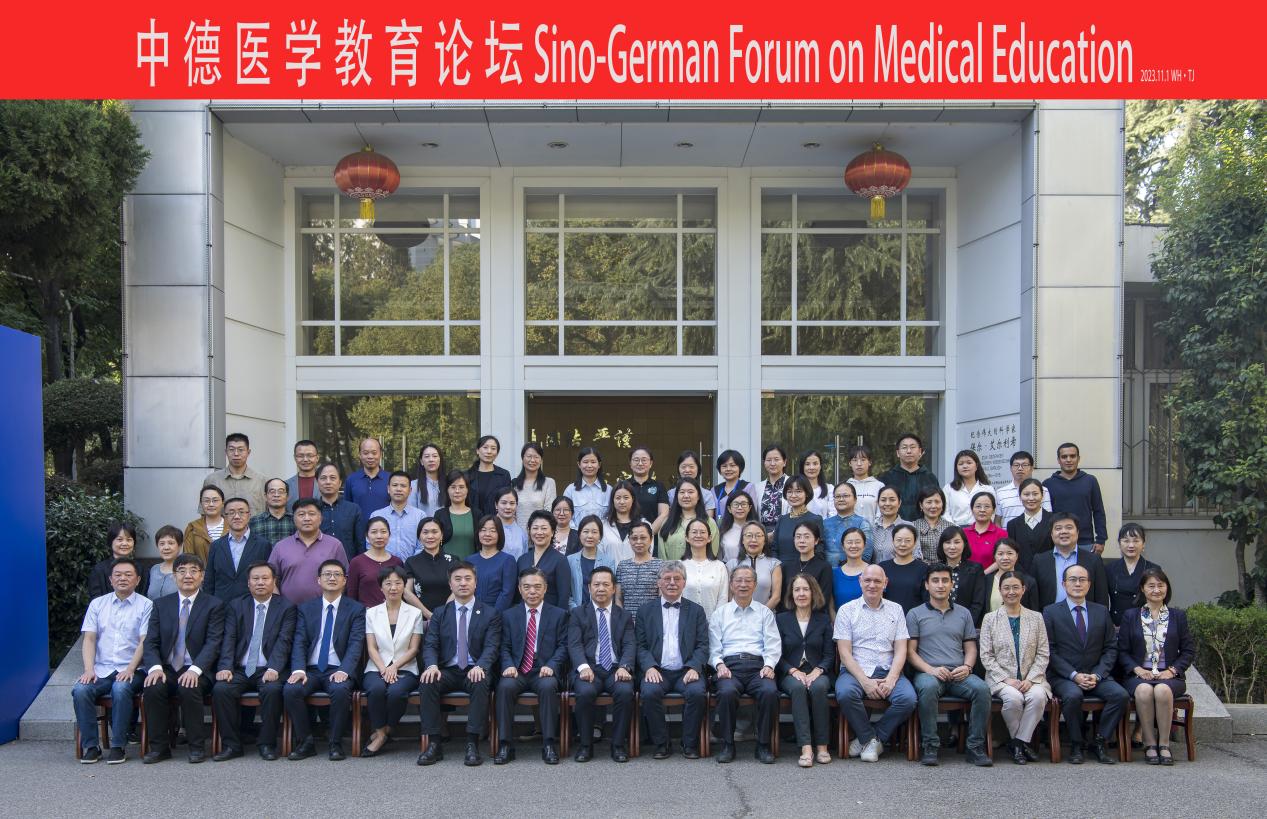
On November 1, 2023, the Sino-German Forum on Medical Education was successfully held in Tongji Medical College(TJMC). The forum is sponsored by the Sino-German Consortium on Medical Research and Education, TJMC, HUST, and Tongji Medical Education Institute of HUST. Experts from Heidelberg University, Dusseldorf University, Wuhan University, Sun Yat-sen University, Peking University and Sichuan University gathered to discuss how to promote the high-quality development of medical education from the perspective of international exchange and innovation.
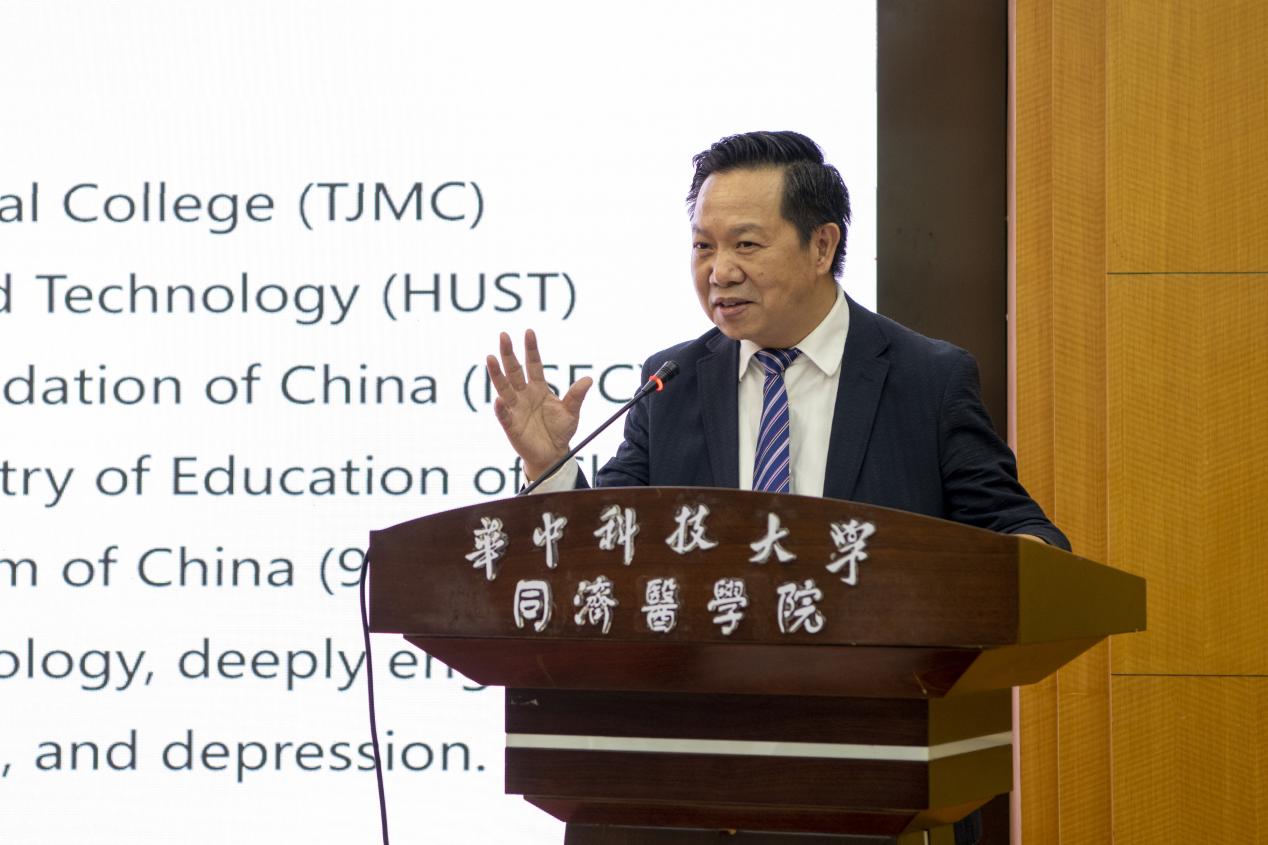
Prof. CHEN Jianguo, Vice-President of HUST and Secretary of the CPC Committee of TJMC
Prof. CHEN Jianguo, Vice-President of HUST and Secretary of the CPC Committee of TJMC, delivered a keynote speech focusing on the Present Situation and Future of Medical Education. He pointed out that at present, the world's medical and health system needs to be built from the four dimensions of big health, group health, same health and whole health, expecting the universities within the Consortium to work together to carry out relevant research around the four health concepts and contribute to improving the ability to deal with new major public health emergencies. He also stressed that medical education needs to cultivate innovative thinking, innovation is an important driving force to promote medical development, and innovative thinking is the key link to cultivate innovative talents. Medical education should focus on stimulating students' desire for knowledge and creativity, in this regard, more exchanges and learning with foreign institutions. He hoped that Chinese brotherly universities would cooperate more extensively and deeply with German universities under bilateral or multilateral framework and strive to create a good situation of mutual learning, complementary advantages and win-win cooperation.
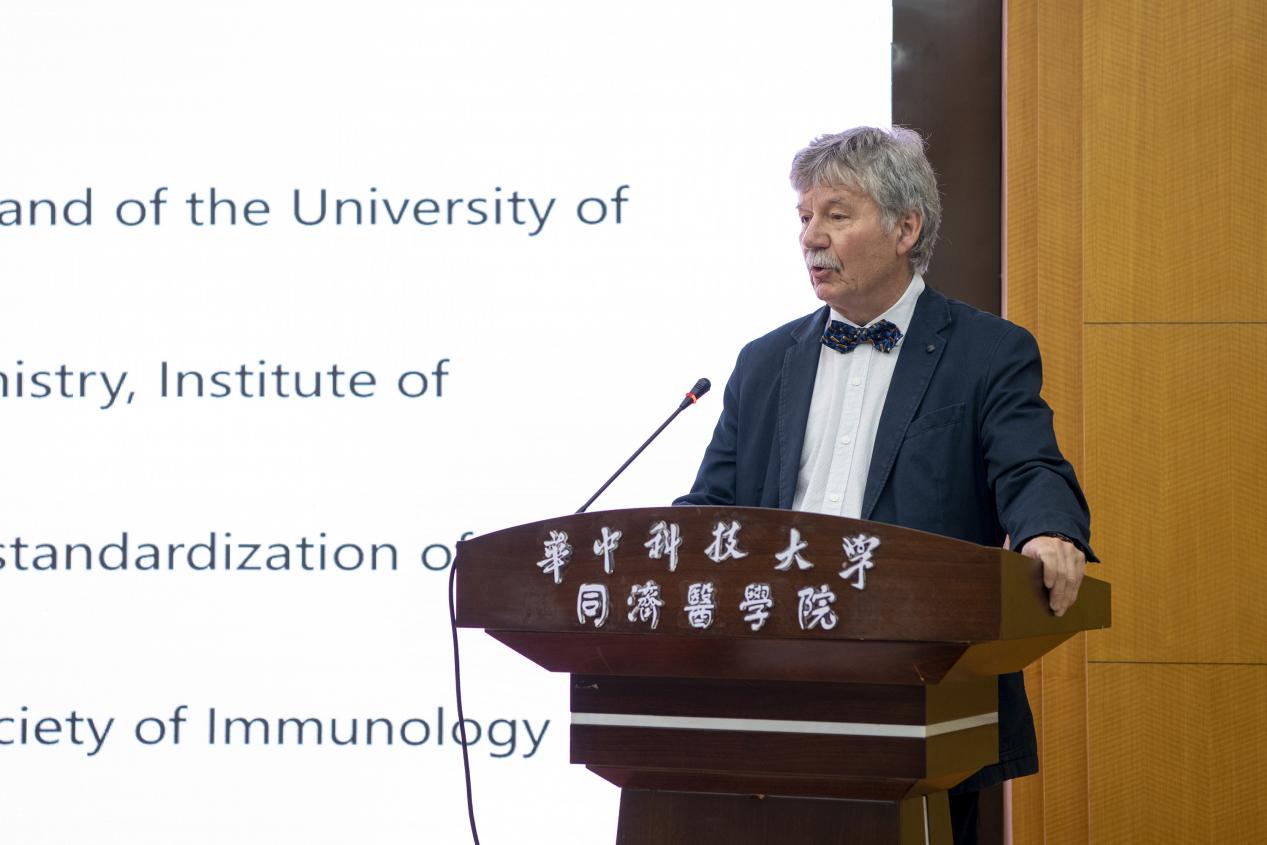
Prof. Michael Kirschfink, Representative of Heidelberg University
Prof. Michael Kirschfink, the Representative of Heidelberg University, addressed the forum, pointing out that this is the first valuable opportunity to exchange teaching knowledge with colleagues and partners in Sino-German Union institutions, and that the current research needs more and more multi-disciplinary and cross-professional collaboration, while the establishment of the Union not only provides a platform for sustainable operation and communication, but also provides a platform for teaching. It also increases the diversity of disciplines and provides a basis for future multidisciplinary exchanges.
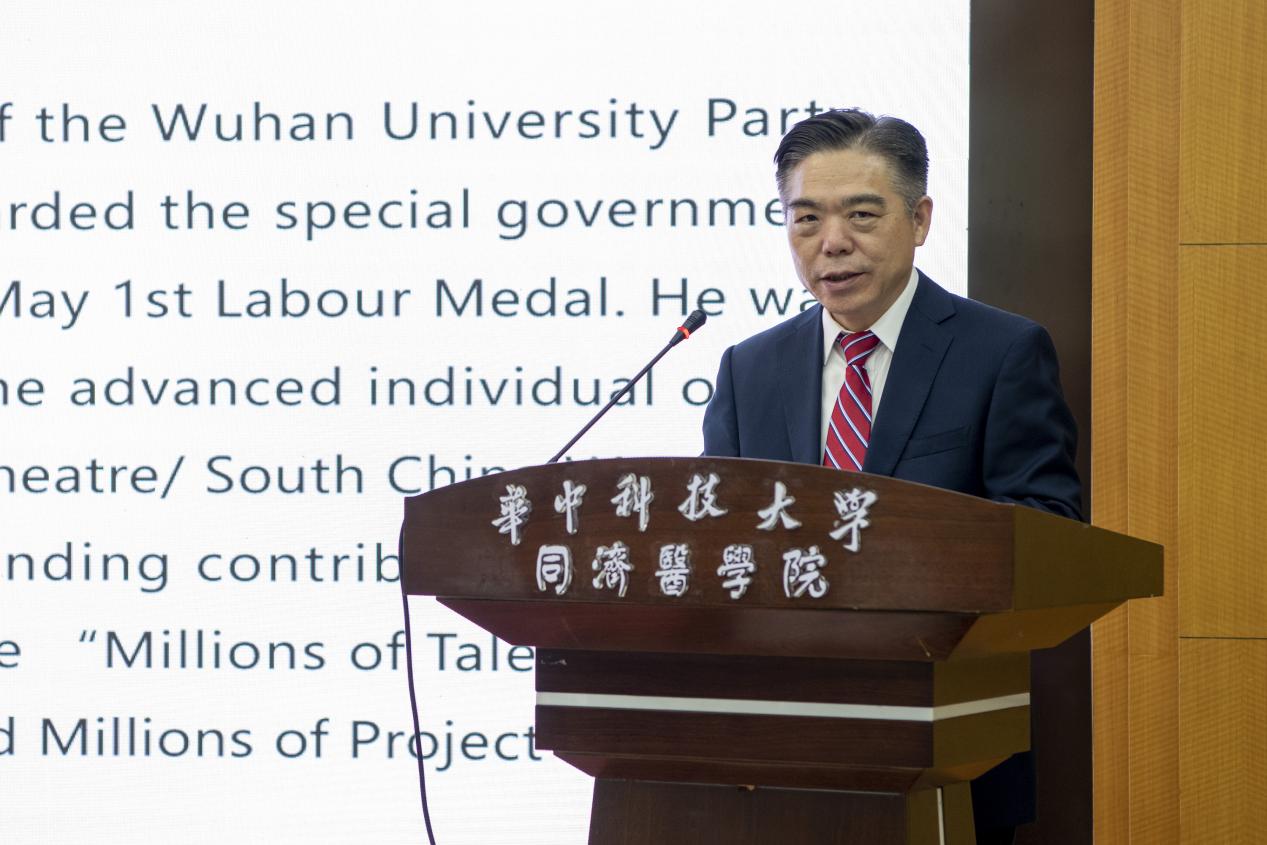
Prof. TANG Qizhu, Vice President of Wuhan University
Prof. TANG Qizhu, Vice President of Wuhan University, addressed the forum, pointing out that the Consortium provides a mechanism platform for Chinese and German universities to achieve mutual benefits and cooperation in the field of medical education. As a member of the Consortium, Wuhan University will actively support the Consortium and strive to improve itself through this platform.
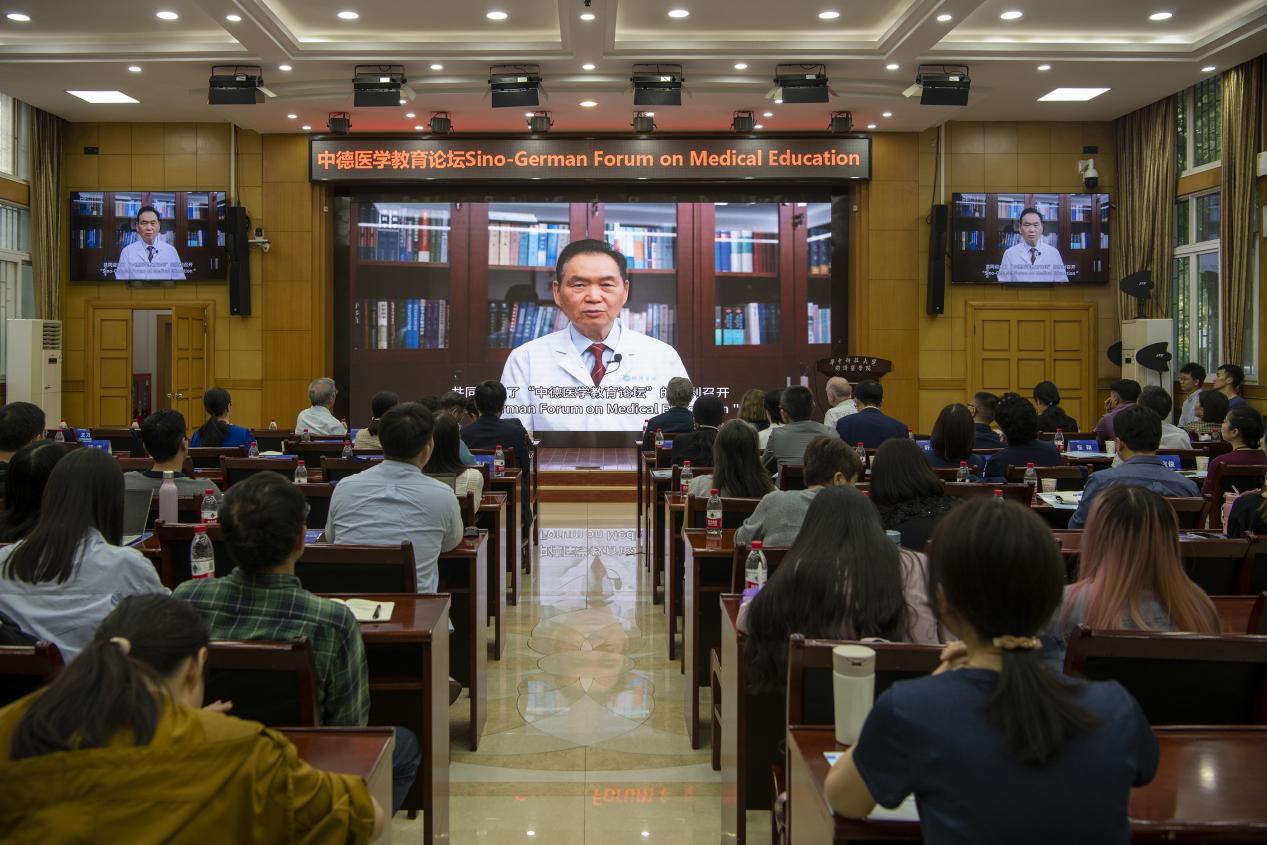
Prof. CHEN Xiaoping, Academician of the Chinese Academy of Sciences and Honorary Dean of TJMC
Prof. CHEN Xiaoping, Academician of the Chinese Academy of Sciences and Honorary Dean of TJMC, expressed blessings and expectations to the forum through video speech. He said that his training experience at Heidelberg University in Germany in the 1980s still brought back fond memories to him. This Sino-German Medical Education Forum is the first offline meeting held under the framework of the Consortium, hoping to share the new development, new models and new ideas of medical education practice through academic exchanges.
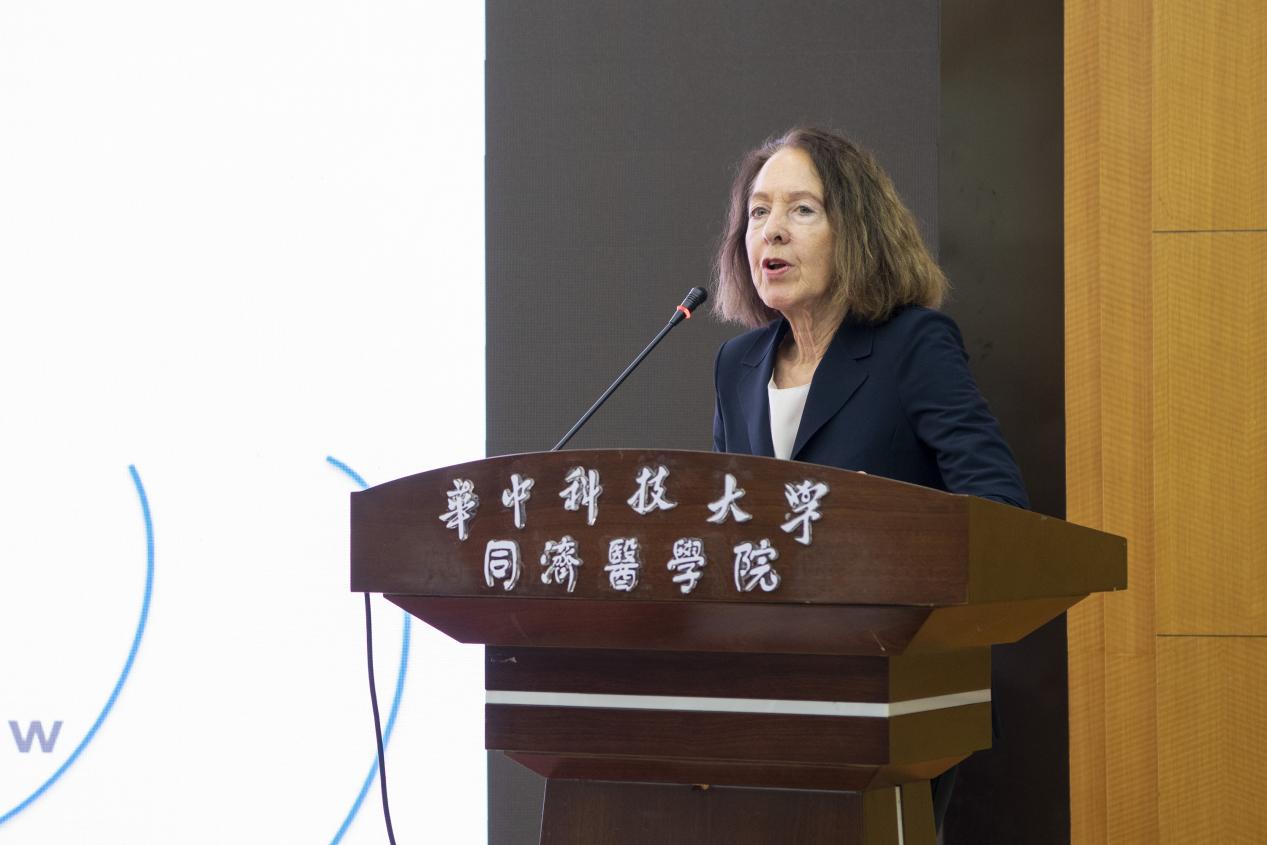
Dr. Veronika Strittmatter-Haubold
The first half of the academic lecture was shared by German experts, Dr. Veronika Strittmatter-Haubold of Heidelberg Normal University, delivered a lecture entitled Life-long Learning: a Concept for Professional Competencies. This paper discusses the concept of lifelong learning and the importance of lifelong learning. She emphasized the importance of lifelong learning to the development of university teachers, students and disciplines, and put forward a new development path of cooperation and self-realization.
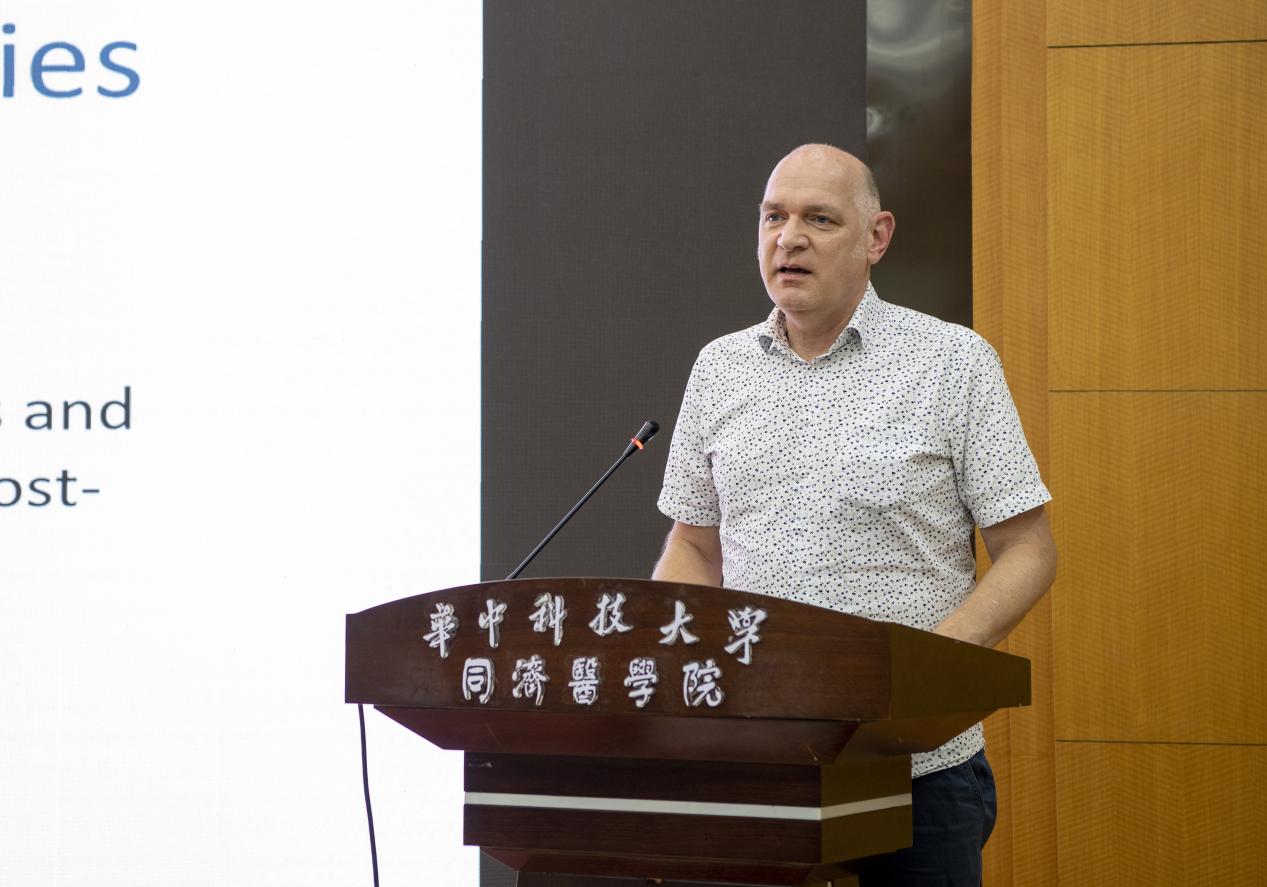
Dr. Med. Hans Martin Bosse
Dr. Med. Hans Martin Bosse of the Medical College of Dusseldorf University, delivered a lecture entitledAcquisition of competencies in pediatrics and adolescent medicine,in which he shared his experience in improving the competence of pediatrics and adolescent medicine. That is, through Web-based virtual patient training, best practice models, standardized patient training and peer role-playing, to enhance clinical skills.
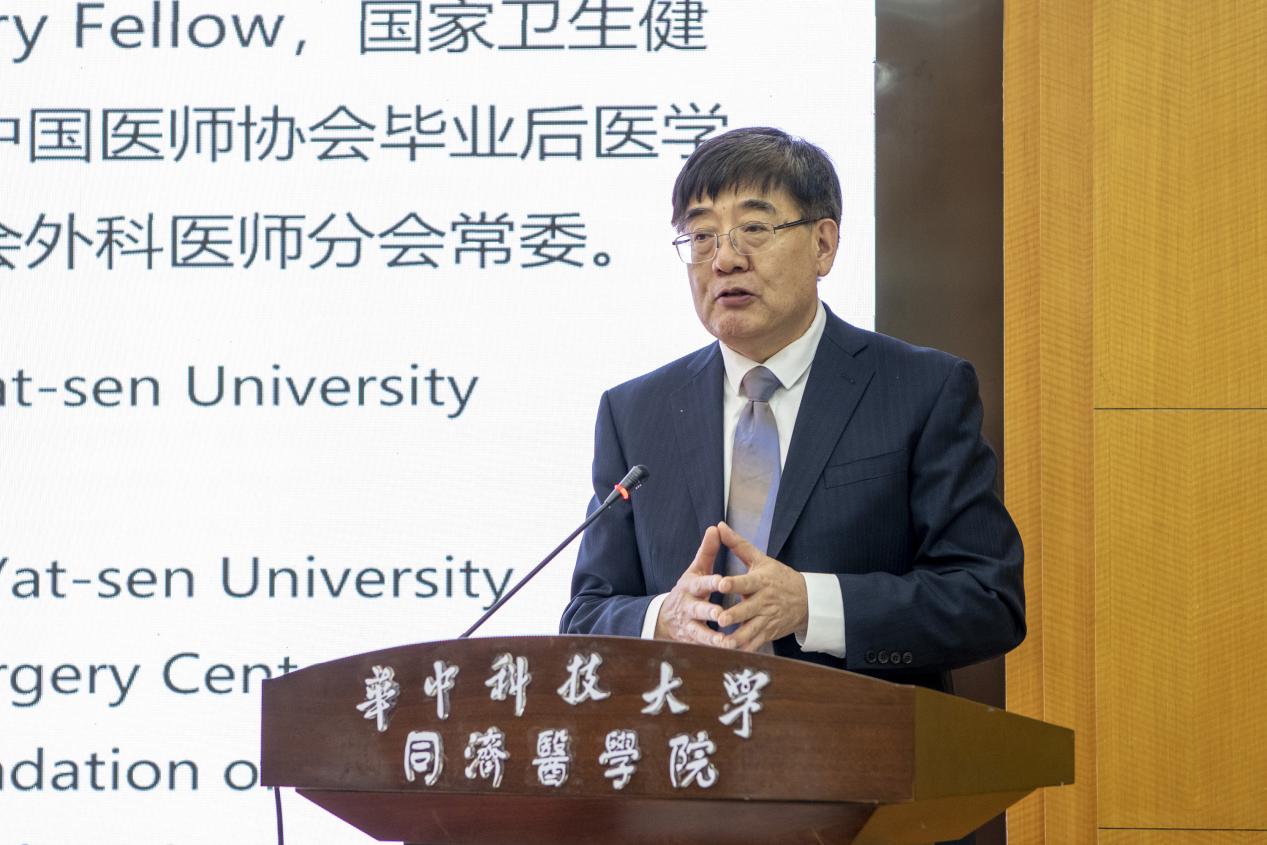
Prof. FENG Zhanchun, Executive Director of the Tongji Institute of Medical Education
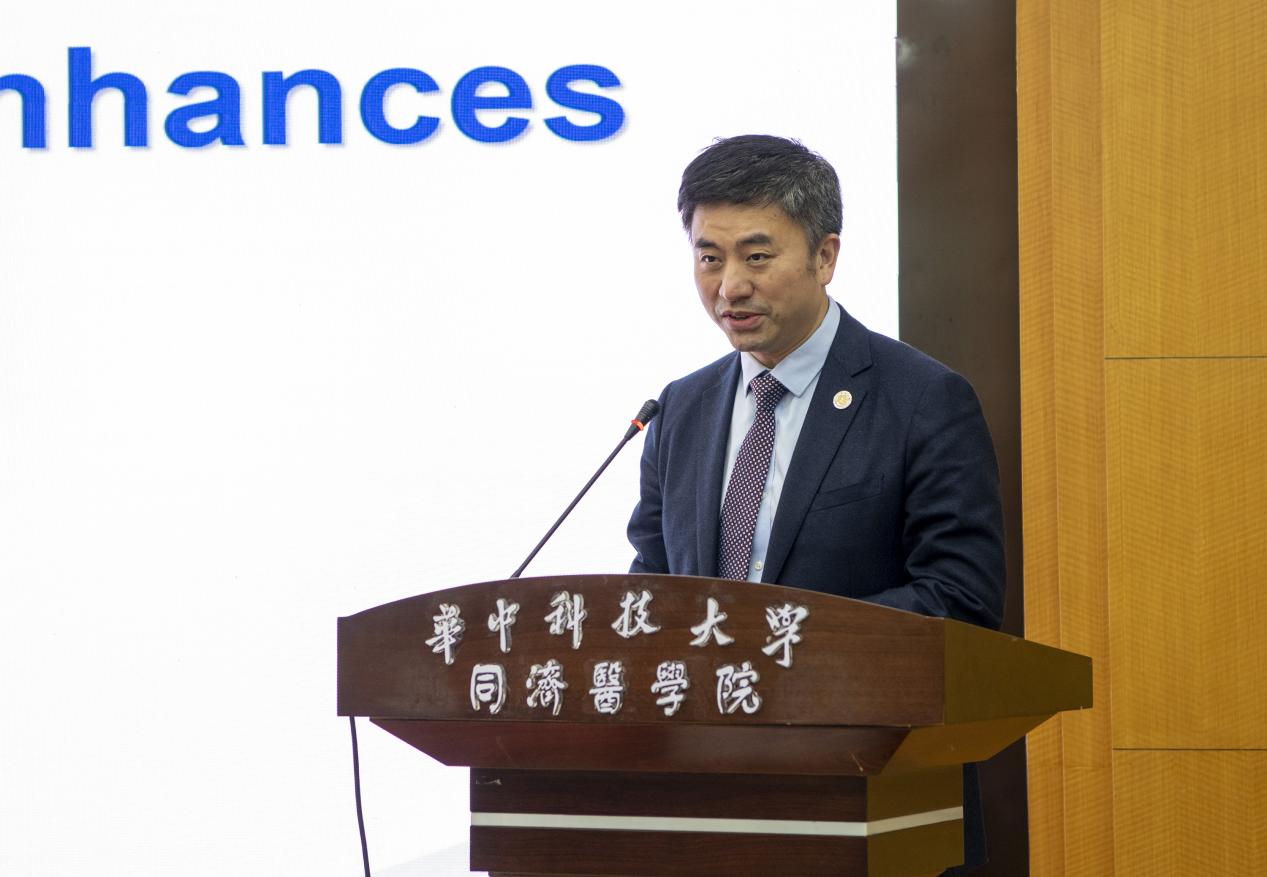
Prof. KUANG Ming, Dean of Zhongshan Medical College of Sun Yat-sen University
The second half of the academic lecture was chaired by Prof. FENG Zhanchun, Executive Director of the Tongji Institute of Medical Education. Prof. KUANG Ming, Dean of Zhongshan Medical College of Sun Yat-sen University, made a report on International Cooperation to Promote Medical Education, taking the medical teaching work of Sun Yat-sen University as an example, and introduced in detail a series of important measures and achievements of the First Affiliated Hospital in promoting high-quality medical education through international cooperation. Including reshaping the structure of education management, professional training of educational theory and skills, creating a platform for medical education innovation, building a capability-oriented teaching system, and actively participating in/holding international conferences.
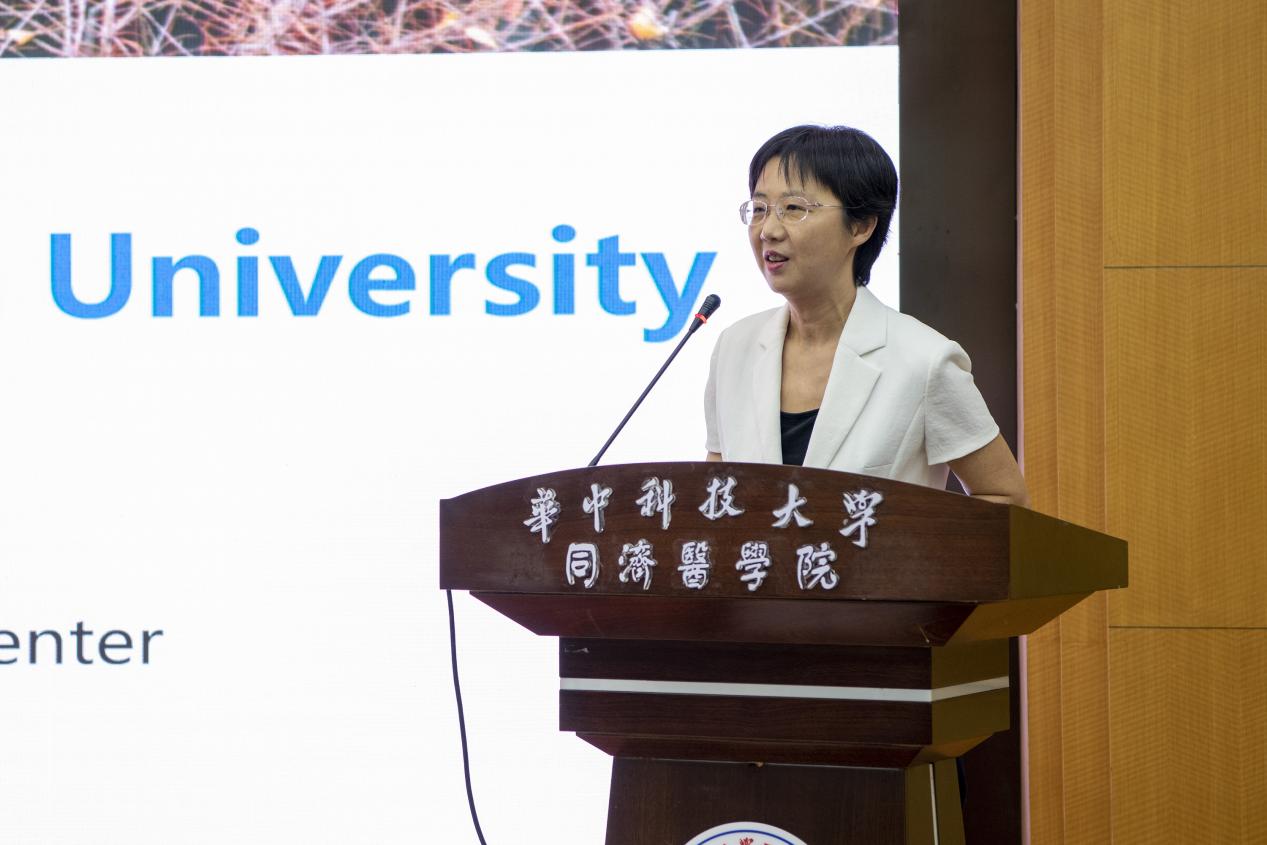
Dr. LIU Hong, Director of Education Department of Health Science Center of Peking University
Dr. LIU Hong, Director of Education Department of Health Science Center of Peking University, shared the topic of Concept and Practice-Sharing of Medical Undergraduate Education in the New Era, and introduced the progress of comprehensive curriculum construction and the training of clinical scientists. She demonstrated in detail the integrated curriculum design and practice of the medical teaching reform in Peking University, emphasizing that all departments and colleges should work together to change the original discipline-centered curriculum system, and advocating early participation in clinical and scientific research work with teachers to awaken the inner interest.
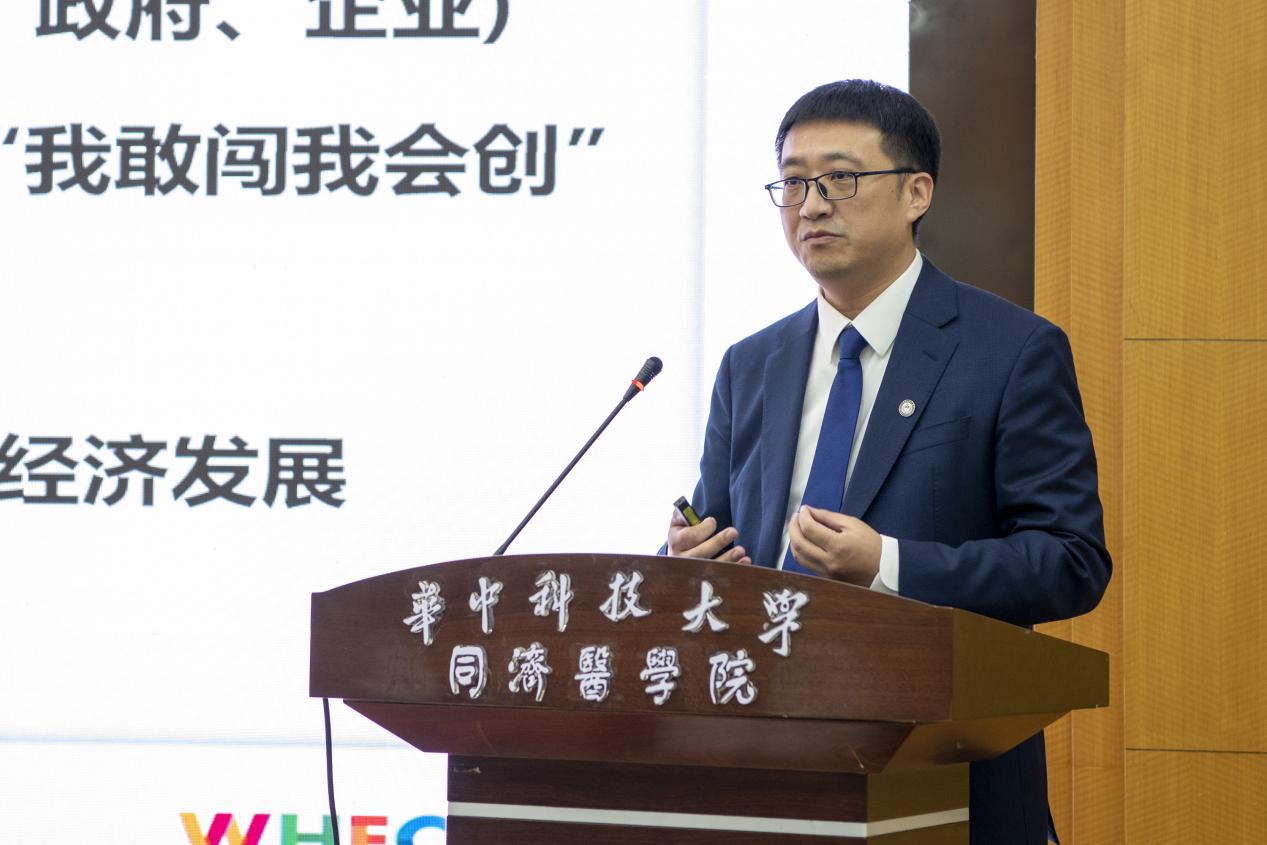
Dr. QING Ping, Director of Department for Medical Teaching Affairs, West China Medical Center of Sichuan University
Dr. QING Ping, Director of Department for Medical Teaching Affairs, West China Medical Center of Sichuan University delivered a report entitled Profound Culture, Strong Disciplines, Key Elements — — Tentative Exploration on Top Innovative Talents Training of West China Medical Center of Sichuan University,in which he analyzed the background and problems of the new medical education reform in the new era, and what Sichuan University has done was systematically introduced to give full play to the synergistic advantages of medical teaching and research: promote the enrichment of scientific research resources to teaching, integrate courses to promote students' integrated learning and formative learning, promote the global innovation of medical disciplines, establish an interdisciplinary innovation system, and encourage science and engineering.
